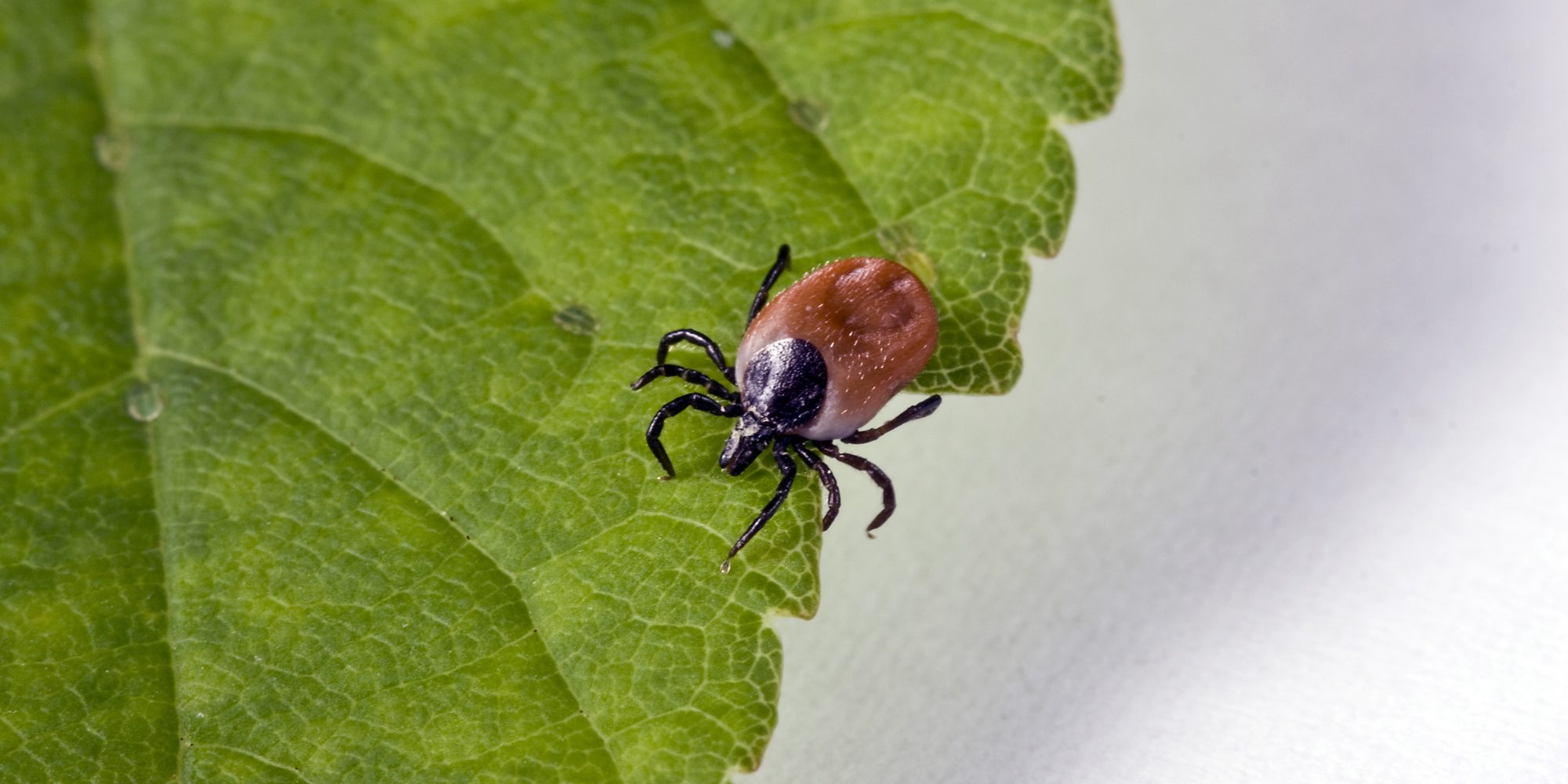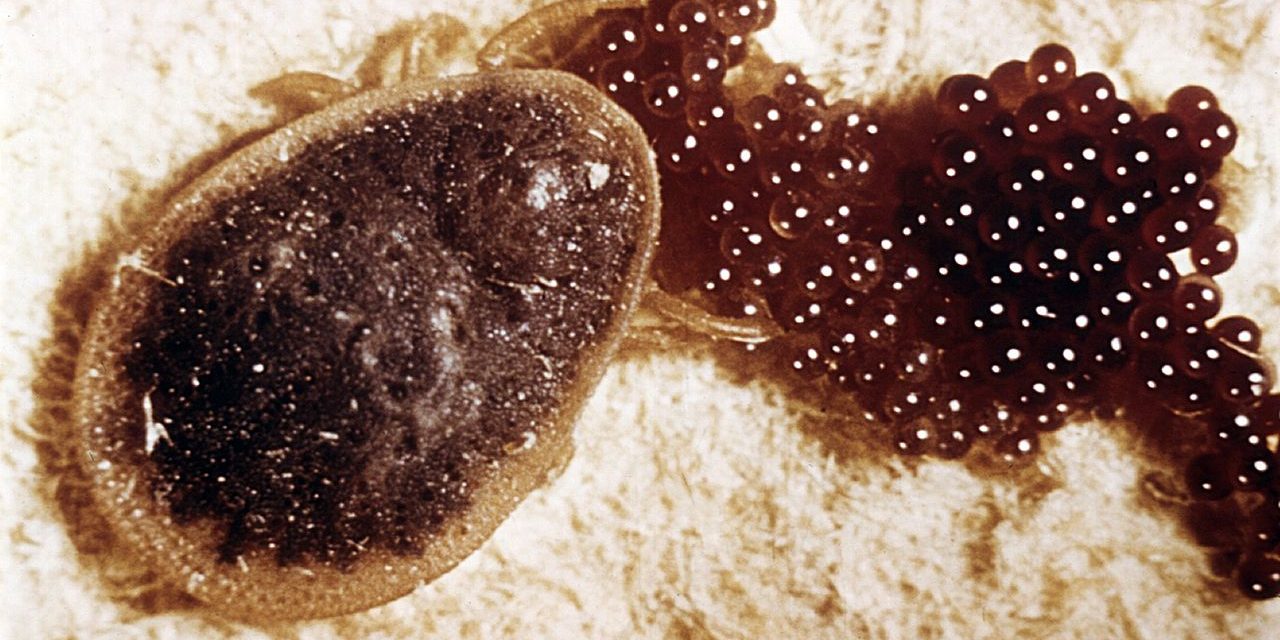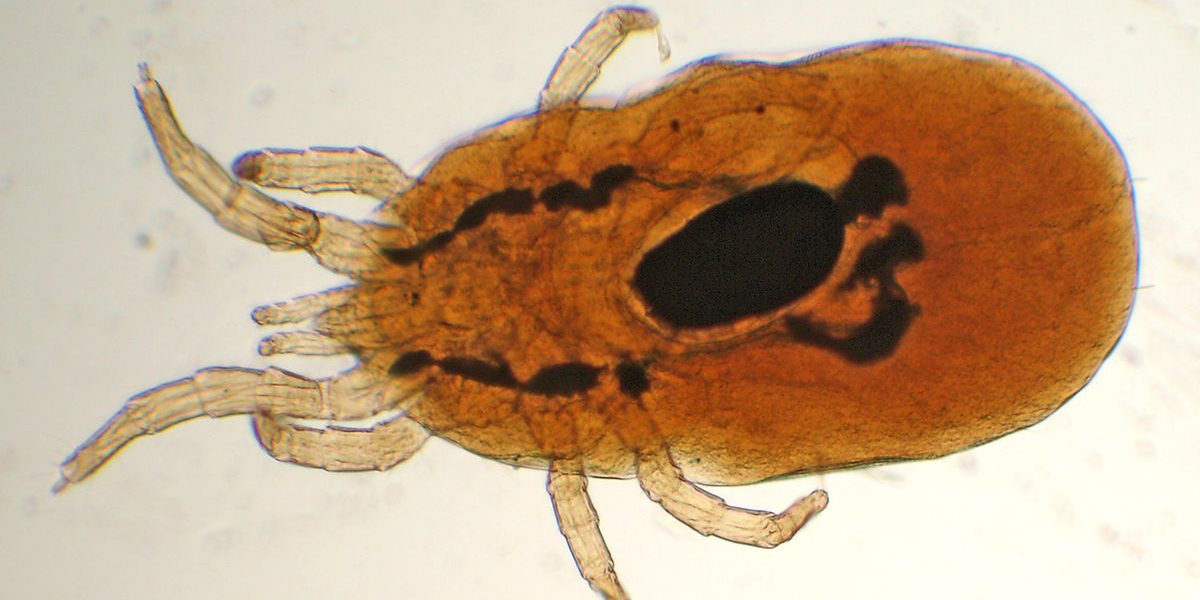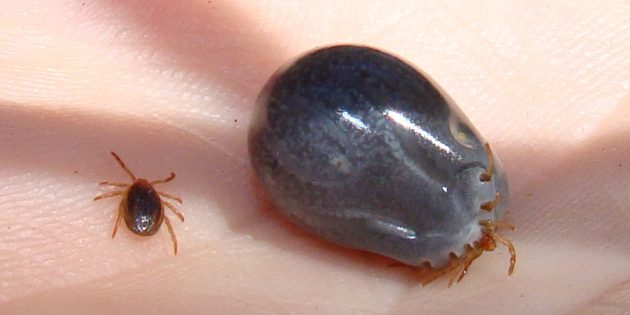You can listen to a short version of the article. If it’s more convenient for you, turn on the podcast.
1. Should I be afraid of any ticks?
No, it all depends on the species. Some of these arachnids are interested in decaying organic matter, others are interested in plants.
People should afraid ixodid, argasid and gamasid ticks. They are the ones who drink blood and carry diseases.
The easiest thing to encounter is ixodid, or encephalitis, ticks. We will talk about them.
2. Can dog ticks harm humans?
Dog tick (Ixodes ricinus) applies to ixodid ticks, and they are dangerous for any warm-blooded mammals. Including for people. Therefore, yes, a bloodsucker brought by a dog can attach itself to a person.
Get ready 🐶🐱
3. What diseases can you get?
Ticks are carriers of many diseases. With his saliva bloodsucker Maybe convey to you:
- Bacterial infections. These include tick-borne borreliosis (Lyme disease), relapsing fever, tularemia and babesiosis.
- Rickettsial infections. These are spotted fevers, Q fever, ehrlichiosis and anaplasmosis.
- Viral diseases. Tick-borne encephalitis, Colorado tick fever, Crimea-Congo hemorrhagic fever.
4. Can ticks carry hepatitis and HIV?
No, fortunately, ticks do not spread such diseases.
5. Can all this get infected anywhere?
In Russia, and even then not everywhere, tick-borne encephalitis and borreliosis are the most common.
Olga Polyakova
General practitioner.
There are prosperous and disadvantaged areas. Unfavorable areas are otherwise called endemic foci; there is a high probability of contracting infections transmitted by the bite of a parasite. In prosperous countries, on the contrary, the risk of infection is low. For example, Moscow is a prosperous area. And the danger zones closest to it are the Yaroslavl and Tver regions.
You can view information for your area on the map project of the ANO “Collective Immunity”.
6. What are the dangers of borreliosis and encephalitis?
These diseases are dangerous due to their complications. Due to borreliosis they may to appear problems with joints, cardiovascular system, neurological disorders, hepatitis, eye inflammation, severe fatigue. Tick-borne encephalitis affects the nervous system.
At first, both diseases manifest themselves with fever, headache and muscle pain. With borreliosis, a specific symptom may appear – a red spot surrounded by white and red rims.
There are no vaccinations against borreliosis, but there are vaccinations against encephalitis, so it is quite possible to protect yourself from infection.
Figure it out 👈
7. If a tick just crawls across my body, can I get infected?
If there is no damage to the skin, it is impossible to become infected. But if there is a fresh wound or crack, the parasite can still introduce an infection there.
8. Can a tick bite me through clothes and tights?
No, the tick will not bite through clothes.
Georgy Budarkevich
Instructor at the ProHelp training center, certified lifeguard, organizer and judge of first aid competitions.
He will crawl over the body in search of a bare spot. Therefore, it is so important that when walking in nature, clothing covers all parts of the body.
9. Can a tick bite and crawl away without attaching itself?
According to Georgy Budarkevich, ticks bite for a reason. He bites into the body to drink blood. And until it is full, it will not fall off. Usually it takes him several days, but in rare cases the meal can last up to two weeks.
Look at a well-fed tick
Collapse illustration
10. Can Ixodid ticks get under the skin?
This may happen in horror films, but it doesn’t happen in real life. Ticks don’t get under the skin, don’t be afraid.
11. How to remove a tick?
It would be good to go to the hospital right away so that the doctor can remove the parasite and treat the bite. If this is not possible, you will have to remove the bloodsucker yourself. This can be done using a twister, fine-tipped tweezers, and even regular thread.
Follow the instructions ✅
12. What if the head of the tick comes off?
You will need to pull it out with a disinfected needle, and then immediately consult a doctor, because the wound may become inflamed.
Tatyana Loshkareva
Honored Doctor of the Russian Federation, infectious disease doctor of the highest qualification category at the Medical Center.
Due to the head remaining in the wound, the infection process may continue. The salivary glands and ducts of the parasite contain the virus of tick-borne encephalitis or borreliosis if the tick is infected.
13. Are all ticks contagious?
No, but in any case, after a tick bite, you should consult a doctor to discuss what to do and what treatment tactics will be if you feel symptoms of one of the diseases that the parasite could transmit to you.
It is not necessary to bring the tick itself for analysis; its results will not affect your treatment tactics, but it may weaken your vigilance or, conversely, make you more anxious than you should be.
14. If the tick falls off, will I be able to understand that it bit me?
It will be difficult. The bite site will turn into a red bump: exactly the same ones that mosquitoes leave. True, you won’t itch. So, just in case, keep an eye on your condition.
15. Is it true that you only need to be afraid of ticks in May and June, and then they are well-fed and don’t bite?
Olga Polyakova
General practitioner.
No, it’s a myth. A bloodsucker can bite and transmit infection at any period of its life, even during cold periods, when the parasite is less active than usual.
In winter, ticks hide from the cold underground. They crawl out when the air warms up to 8 °C. That is, parasites are active from approximately March to November.
16. When is the bite most dangerous?
This does not depend on the time of year or other conditions. If a tick is infected, the bite is always dangerous.
17. Where can you come across a tick?
Ixodids are mainly found in forests, fields, parks and gardens. But you can also pick up the parasite in the grass near your home. According to Georgy Budarkevich, the probability is small, but still there. Sometimes animals bring parasites into the yard.
18. Can ticks fly or fall from trees?
No, ticks don’t fly, they don’t have wings. And they don’t fall from trees. About this for a long time They say scientists.
19. Is it true that ticks live mainly along paths?
Not really. Ticks can be anywhere. But they prefer warm and humid places, often crawl in bushes and grass, love the edges of paths and undergrowth.
20. Can ticks live in my home?
The parasite can get into your apartment if you bring it on your clothes or if it falls off your pet.
Georgy Budarkevich
Certified lifeguard.
But the bloodsucker will not last long; it needs moisture and soil. He will quickly die in the apartment.
21. Is it possible to somehow protect yourself from ticks?
Yes, you can. If you are going on a hike or a walk in the forest, put on thick clothes with long sleeves.
Treat clothing, shoes and equipment with a 0.5% permethrin solution. It can be bought at a pharmacy. If the solution itself is not available, ask for a head lice spray containing permethrin.
Apply repellent to the body with picardine, diethyltoluamide or oil of lemon eucalyptus. Just read the instructions carefully.
Replenish your first aid kit 🧴
22. Will home remedies help?
Experts believe that it is better not to use home remedies; they are unlikely to help.
23. If you spray with repellent or permethrin, will a tick definitely not bite?
Effectiveness of repellents and permethrin depends on the type of tick, air temperature, sweating and even physical activity of a person. Therefore, it cannot be said that they will 100% protect you from parasites.
24. What do ixodid ticks feed on before they fall on humans?
Animal blood. To live, the parasite needs a host. Depending on the stage of development of the tick, its food source can be rodents, birds, larger animals such as hares, deer, domestic dogs and cats.
In winter, most ticks go without food; at sub-zero temperatures they are not active.
25. Are ticks dangerous for animals?
Very. Ticks carry and spread ehrlichiosis, anaplasmosis, borreliosis, and piroplasmosis. Dogs often die from the latter. Therefore, parasites also need to be removed from animals. If after a bite your pet feels unwell – does not eat, looks lethargic and tired, take him to the veterinarian.
26. Does a tick die after being bitten?
No, the bloodsucker does not die after being bitten. This is another myth.
27. How long does a tick live?
Always different, depending on how often the parasite feeds. But usually about 3 years.
28. Can a female tick lay eggs on the skin?
This is hardly possible. The female lays eggs under the bark of trees.
Save to bookmarks 🦟🐜🐝







